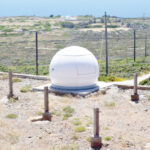
The National Economic Council (NEC) at its monthly meeting held on Thursday, April 27, 2017 decided that state and local governments in the country would henceforth keep their share of natural resource and ecological funds. Speaking at the end of the meeting, Governor Willie Obiano of Anambra State said state and local governments’ share of the funds would from now on be used by the affected states and local councils for emerging interventions.
Obiano said the Accountant General of the Federation told the Council that the natural resource fund balance as at March 31, 2017 was N70.9 billion while that of the ecological fund was N33.6 billion. He further said Minister of Finance Mrs. Kemi Adeosun told the Council that the balance in the Excess Crude Account (ECA) as at April 26, 2017 was $2.2 billion and that the Efficiency Unit set up in the Federal Ministry of Finance has since its inception saved N17billion.
Worried by the ecological fund’s depletion, the Council meeting which was chaired by Vice President Yemi Osinbajo ordered an audit of the fund. A committee comprising the Ministers of Finance and Environment as well as governors of Oyo, Borno, Imo, Kaduna, Akwa Ibom and Benue states was set up to audit the fund. The committee is to recommend how the fund’s proceeds would be managed.
Ecological fund is one public account in Nigeria that has a history of mismanagement. In 2016 for example, the Economic and Financial Crimes Commission (EFCC) was reported to be investigating some serving and former governors over mismanagement of ecological funds in their respective states. Senator Joshua Dariye has been standing trial for diverting N1.16bn of Plateau State’s ecological fund while serving as governor. This nine year-old case which is being prosecuted by EFCC was once closed but was later re-opened. Only recently, former governor of Niger State Mu’azu Babangida Aliyu was granted bail by a High Court in Minna after a 10-day prison remand for charges that include fraudulent application of N2 billion ecological fund.
Many of the governors being investigated or standing trial over ecological funds are accused of diverting the funds to purposes other than ecological challenges in their states. Some of them are accused of using the fund to finance election campaigns, diversion to personal projects, payment of salaries due to drop in revenue allocation and acquisition of luxury properties in choice locations.
We commend the National Economic Council for its resolve to probe the application of ecological funds. Besides auditing the fund, the probe committee which is also tasked to recommend better ways of managing the finances, should give proper definition of environment degradation. A situation where governors routinely use ecological funds for payment of salaries or for political campaigns raises questions about what constitutes environmental degradation. The absence of a national roadmap for the enhancement of the country’s environment accounts for the widespread misapplication of these funds by many states.
Although direct access to these funds could be seen to be an apt decision, a more careful consideration of the policy makes it look like a blank cheque issued to state governments. If the funds were mostly misappropriated when they were domiciled with the federal government which monitored their application, it is not certain that the situation would be better when state governments have unhindered access to the funds. We suggest that the management of these funds should be a concurrent fiscal responsibility of both tiers of government.
The National Assembly too must improve upon its oversight functions in order to monitor the funds’ application. The AcGF and the AuGF should through their various accounting and auditing functions ensure that these funds are not just properly accounted for but also promptly audited. We urge the committee to conclude its assignment on schedule. The National Economic Council should, after studying the report, promptly release a White Paper that should fully be implemented.




